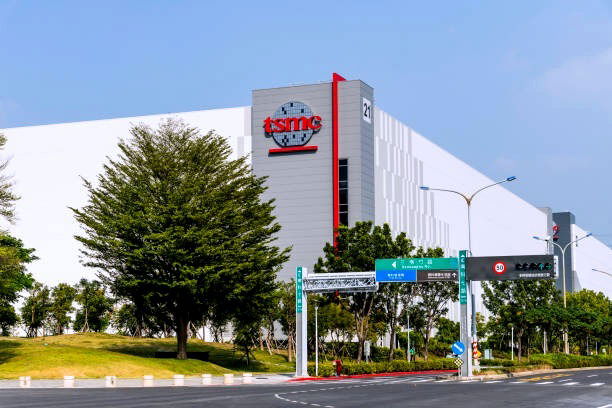TSMC: Global Leader in Semiconductor Manufacturing and Taiwan’s Pride
Introduction
Taiwan Semiconductor Manufacturing Company (TSMC), headquartered in Hsinchu Science Park, Taiwan, is the world’s largest and most valuable semiconductor foundry. Founded in 1987 by Morris Chang, TSMC pioneered the dedicated foundry model, revolutionizing the semiconductor industry. It manufactures chips for tech giants like Apple, NVIDIA, Qualcomm, and AMD, powering smartphones, AI, automotive systems, and high-performance computing. In 2024, TSMC achieved an annual production capacity of 16 million 12-inch equivalent wafers and leads in producing the world’s most advanced 3-nanometer chips. This blog explores TSMC’s journey, innovations, global impact, and future prospects.
Early Days: Birth of the Foundry Model
In 1987, Morris Chang established TSMC with support from the Taiwanese government and technical assistance from Philips. At the time, the semiconductor industry was dominated by integrated device manufacturers (IDMs), where companies designed and manufactured their own chips. TSMC introduced the world’s first “pure-play” foundry model, focusing solely on manufacturing chips designed by other companies. This model enabled fabless companies like NVIDIA and Qualcomm to innovate without owning production facilities.
The Taiwanese government provided 48% of the initial capital, with Philips contributing a 27.5% stake. Under Morris Chang’s visionary leadership, TSMC scaled rapidly and listed on the Taiwan Stock Exchange in 1993, setting the stage for global dominance.
Morris Chang’s Legacy
Morris Chang, often called the “Godfather of Chips,” transformed TSMC into a global leader. Born in China in 1931, Chang earned degrees from MIT and worked at Texas Instruments before returning to Taiwan to build its semiconductor industry. His introduction of the foundry model and focus on customer trust and technological leadership were pivotal to TSMC’s success. By the time he retired in 2018, TSMC was a pioneer in 7-nanometer technology, cementing Taiwan’s place in the global tech landscape.
Current Leadership: Mark Liu and C.C. Wei
After Morris Chang’s retirement in 2018, Mark Liu became chairman and C.C. Wei took over as CEO. Under their leadership, TSMC commercialized 5-nanometer and 3-nanometer technologies, used in chips like Apple’s A14, M1, and AMD’s Ryzen 7000 series. They introduced advanced packaging solutions, such as 3DFabric and SoIC, for AI and high-performance computing (HPC). Their strategic vision ensures TSMC remains at the forefront of semiconductor innovation.
Technological Innovation: 3nm and Beyond
TSMC was the first foundry to bring 7-nanometer and 5-nanometer manufacturing to market, leveraging ASML’s Extreme Ultraviolet (EUV) lithography technology. In 2024, TSMC began mass production of 3-nanometer chips, offering significant improvements in power efficiency and performance. These chips are critical for AI, 5G, and automotive applications. TSMC unveiled its A14 process in 2025, targeting enhanced AI and HPC capabilities.
TSMC’s R&D focuses on nanosheet transistors, high-mobility channels, and low-dimensional materials. It is also exploring non-volatile memory solutions like STT-MRAM and RRAM for AI edge devices, positioning itself for future technological leaps.
Global Presence and Expansion
TSMC’s primary operations are in Taiwan, where it operates four 12-inch Gigafabs, four 8-inch fabs, and one 6-inch fab. It also has facilities in the United States (TSMC Arizona), China (TSMC Nanjing), and Japan (JASM). In 2024, TSMC began constructing a specialty technology fab in Dresden, Germany. In the U.S., TSMC is building three fabs in Arizona, with investments exceeding $65 billion. These expansions address geopolitical tensions and the need for supply chain diversification.

Customers and Market Impact
In 2024, TSMC produced 11,878 products for 522 customers, spanning smartphones, AI, automotive, and IoT applications. Its clients include Apple, NVIDIA, AMD, Qualcomm, and MediaTek. TSMC manufactures 92% of the world’s advanced chips, making it indispensable to the global tech supply chain. In Taiwan, TSMC contributes significantly to the economy, accounting for roughly 25% of exports and 30% of the Taiwan Stock Exchange’s market value.
Geopolitical Significance: The Silicon Shield
TSMC’s dominance has earned Taiwan the nickname “Silicon Shield,” contributing to its geopolitical stability. Amid U.S.-China tensions and concerns over Taiwan’s security, TSMC’s role is critical. The U.S. provided TSMC with $6.6 billion through the CHIPS and Science Act to boost domestic manufacturing. However, with most production still in Taiwan, TSMC poses a risk to the global supply chain, highlighting its strategic importance.
Sustainability and Corporate Responsibility
TSMC aims to achieve net-zero emissions by 2050. It invested $50 million in Apple’s Restore Fund and launched an environmental data platform for suppliers, benefiting 429 factories in 2024. TSMC’s sustainability initiatives set a benchmark for the semiconductor industry, aligning with global environmental goals.
Challenges and Criticisms
TSMC faces resource challenges, including land, water, and electricity, as well as a shortage of skilled talent. Geopolitical tensions and U.S.-China trade restrictions impact its operations. In 2024, TSMC’s share price dropped 6.7% after it lowered its chip industry growth forecast. Despite these challenges, TSMC’s technological leadership and customer trust keep it ahead of competitors like Samsung and Intel.
TSMC’s Future
TSMC is poised to lead in the AI, 5G, and automotive industries. It is researching 2-nanometer technology and high-bandwidth memory (HBM4) to meet future demands. Its open innovation platform fosters collaboration with startups and customers. TSMC’s global expansion and sustainability commitments position it as a key player in the future tech landscape.
Conclusion
From a modest startup in Taiwan, TSMC has become the world’s most critical semiconductor company. Its innovative foundry model, advanced technology, and customer-centric approach have revolutionized the tech industry. TSMC’s role in shaping the future of AI, smartphones, and automotive systems is unparalleled. Despite geopolitical and environmental challenges, TSMC’s technological leadership and Taiwan’s “Silicon Shield” ensure its central role in the global tech ecosystem.
© 2025 Tech Insights Blog. All rights reserved